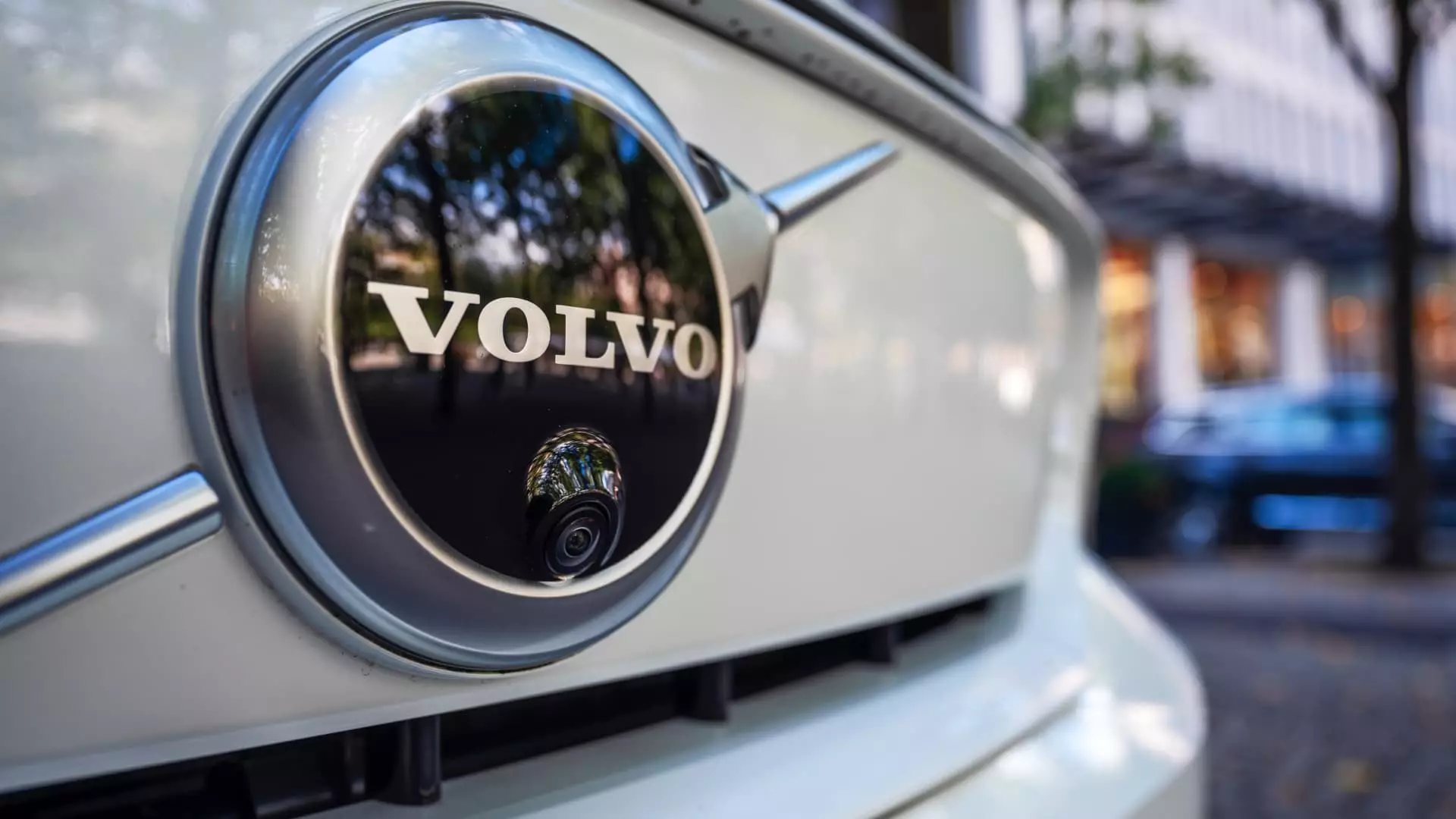Volvo Cars, a name synonymous with safety and innovation in the automotive sector, has just made the gut-wrenching decision to lay off approximately 3,000 employees. This staggering cut, representing around 15% of its office-based workforce in Sweden, has sparked a whirlwind of discussion regarding the company’s future and the broader implications for the automotive landscape. While corporate cost-cutting strategies can be seen as a necessity in tough economic times, the human cost of job cuts cannot be overlooked or trivialized. The automobile industry is currently grappling with unprecedented challenges, and it appears that the consequences are being squarely borne by the shoulders of the workforce.
A Formidable Shift in Strategy
Volvo’s recent announcements indicate a significant shift in strategy, as highlighted by CEO Håkan Samuelsson’s remarks on the importance of improving cash flow and reducing structural costs. Echoing a sentiment that is becoming increasingly common among companies retrenching in a volatile market, Samuelsson states that these tough decisions are necessary for the firm’s viability and competitiveness. Yet, one cannot help but wonder: at what cost? Disbanding such a substantial portion of its office-based staff not only jeopardizes the livelihood of hundreds but also raises questions about the company’s commitment to its employees.
Volvo’s attempts to remain a leader in the electric vehicle market are commendable, but they must not dismiss the foundational value that humans bring to engineering, design, and innovation. The wavering focus on people could be detrimental, even when faced with challenging economic realities.
The Broader Context: Tariffs and Market Pressures
Volvo’s job cuts cannot be examined in isolation; they are a response to multifaceted pressures in the global economy. The looming threat of tariffs, especially those proposed by the United States on European imports, casts a long shadow over automotive manufacturers. When the U.S. government hinted at imposing a 50% tariff on European cars, it created a ripple effect that jeopardized the operational viability of companies like Volvo. The combined anxiety of trade wars and market instability calls into question the stability of established manufacturing processes as firms scramble to stay relevant.
Volvo’s decision to cut jobs is not only about immediate financial savings, but also about addressing uncertainty in a rapidly evolving industry. This reality serves as a stark reminder that in the race towards electrification and modernization, companies are often left with unsavory choices.
Resilience Amid Challenges
The layoffs signal a potentially pivotal moment for Volvo Cars, as the company seeks resilience in the face of adversity. The company has announced a strategic effort to focus on becoming a fully electric car maker—an ambition that is both noble and ambitious. Yet, as it pivots towards future innovations and shifts resources, one wonders if Volvo can maintain its already established reputation for quality and reliability.
Samuelsson’s assertion of attracting and developing talent for an “ambitious future” is laden with irony. The very actions to streamline operations may send a conflicting message to prospective and existing employees. If finding and retaining talent is a priority, can a company genuinely focus on its workforce while simultaneously laying off thousands? It is an enigmatic balancing act that automotive giants must grapple with.
A Call for Empathy in Corporate Leadership
In the end, while corporate leaders such as Samuelsson navigate the treacherous waters of market forces and competition, a plea emerges for empathy and humanity in decision-making processes. Eager to cut costs and remain agile in a turbulent market, the value of the workforce should not become an afterthought. High-level strategies that prioritize profits over people are destined to undermine the very ethos of innovation and success.
The recent developments at Volvo Cars represent more than just a reaction to external pressures—they signal a critical juncture for the automotive industry. As we stand witness to these pivotal changes, one can only hope for a reevaluation of priorities that emphasizes the integral role that human talent plays in shaping a sustainable future. In the relentless chase for performance, the true test of resilience will be how companies like Volvo choose to treat those who make their success possible in the first place.


Leave a Reply